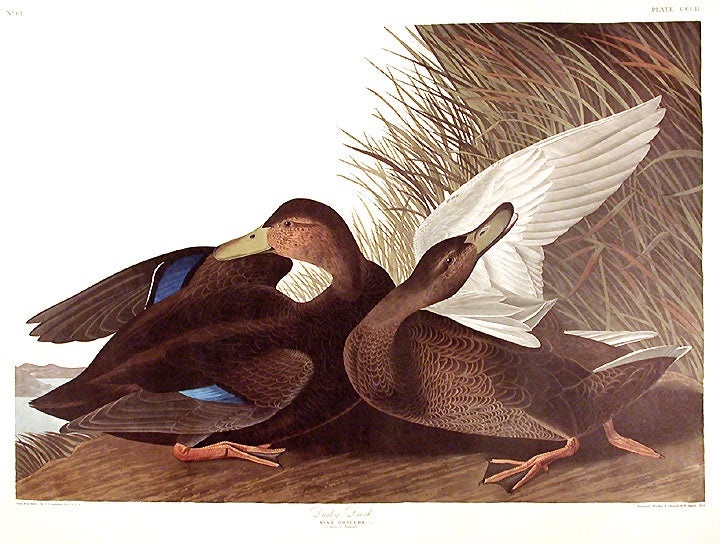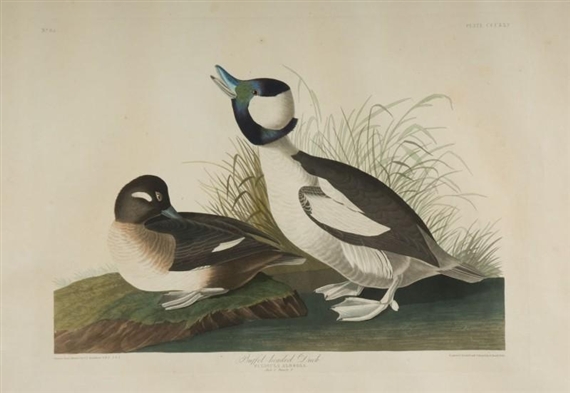August 14
No rain, only the dusty road spotted with the few drops which fell last night, — but there is quite a high and cool wind this morning.
Since August came in, we have begun to have considerable wind, as not since May, at least.
The roads nowadays are covered with a light-colored, powdery dust (this yesterday), several inches deep, which also defiles the grass and weeds and bushes, and the traveller is deterred from stepping in it.
The dusty weeds and bushes leave their mark on your clothes.
Mountain-ash berries orange (?), and its leaves half yellowed in some places.
3 P.M. To climbing fern with E. Hoar.
It takes a good deal of care and patience to unwind this ' fern without injuring it. Sometimes same frond is half leaf, half fruit. E. talked of sending one such leaf to G. Bradford to remind him that the sun still shone in America.
The uva-ursi berries beginning to turn.
6 P.M. To Hubbard Bath and Fair Haven Hill.
I notice now that saw-like grass seed where the mowers have done.
The swamp blackberries are quite small and rather acid.
Though yesterday was quite a hot day, I find by bathing that the river grows steadily cooler, as yet for a fortnight, though we have had no rain here. Is it owing solely to the cooler air since August came in, both day and night, or have rains in the southwest cooled the stream within a week?
I now, standing on the shore, see that in sailing or floating down a smooth stream at evening it is an advantage to the fancy to be thus slightly separated from the land.
It is to be slightly removed from the common- place of earth.
To float thus on the silver-plated stream is like embarking on a train of thought itself.
You are surrounded by water, which is full of reflections; and you see the earth at a distance, which is very agreeable to the imagination.
I see the blue smoke of a burning meadow.
The clethra must be one of the most conspicuous flowers not yellow at present.
I sit three-quarters up the hill.
The crickets creak strong and loud now after sunset. No word will spell it. It is a short, strong, regular ringing sound, as of a thousand exactly together, — though further off some alternate, repeated regularly and in rapid time, perhaps twice in a second.
Methinks their quire is much fuller and louder than a fortnight ago.
Ah ! I need solitude.
I have come forth to this hill at sunset to see the forms of the mountains in the horizon, to behold and commune with something grander than man.
Their mere distance and unprofanedness is an infinite encouragement.
It is with infinite yearning and aspiration that I seek solitude, more and more resolved and strong; but with a certain genial weakness that I seek society ever.
I hear the nighthawk squeak and a whip-poor-will sing.
I hear the tremulous squealing scream of a screech owl in the Holden Woods, sounding somewhat like the neighing of a horse, not like the snipe.
Now at 7.45, perhaps a half-hour after sunset, the river is quite distinct and full of light in the dark landscape, --
As I go home by Hayden's I smell the burning meadow.
I love the scent.
It is my pipe.
I smoke the earth.
Mountain-ash berries orange (?) See July 28, 1859 ("Young purple finches eating mountain-ash berries (ours). "); August 25, 1859 ("Mountain-ash berries partly turned. Again see, I think, purple finch eating them.")
The uva-ursi berries beginning to turn. See July 16, 1855 ("Uva-ursi berries begin to redden."); September 21, 1856 ("Uva-ursi berries quite ripe.")
I find by bathing that the river grows steadily cooler. See August 12, 1854 ("I bathe at Hubbard's. The water is rather cool, comparatively."); September 6, 1854 ("Hubbard Bath . . . The water is again warmer than I should have believed; say an average summer warmth, yet not so warm as it has been. It makes me the more surprised that only that day and a half of rain should have made it so very cold when I last bathed here. "); September 12, 1854 ("bathing I find it colder again than on the 2d, so that I stay in but a moment. I fear that it will not again be warm."): September 24, 1854 (" It is now too cold to bathe with comfort."; September 26 1854 ("Took my last bath the 24th . Probably shall not bathe again this year. It was chilling cold.") See also A Book of the Seasons, by Henry Thoreau, The Luxury of Bathing
August 14. See A Book of the Seasons, by Henry Thoreau, August 14.
The uva-ursi berries beginning to turn.
August 14, 2014
6 P.M. To Hubbard Bath and Fair Haven Hill.
I notice now that saw-like grass seed where the mowers have done.
The swamp blackberries are quite small and rather acid.
Though yesterday was quite a hot day, I find by bathing that the river grows steadily cooler, as yet for a fortnight, though we have had no rain here. Is it owing solely to the cooler air since August came in, both day and night, or have rains in the southwest cooled the stream within a week?
I now, standing on the shore, see that in sailing or floating down a smooth stream at evening it is an advantage to the fancy to be thus slightly separated from the land.
It is to be slightly removed from the common- place of earth.
To float thus on the silver-plated stream is like embarking on a train of thought itself.
You are surrounded by water, which is full of reflections; and you see the earth at a distance, which is very agreeable to the imagination.
I see the blue smoke of a burning meadow.
The clethra must be one of the most conspicuous flowers not yellow at present.
I sit three-quarters up the hill.
The crickets creak strong and loud now after sunset. No word will spell it. It is a short, strong, regular ringing sound, as of a thousand exactly together, — though further off some alternate, repeated regularly and in rapid time, perhaps twice in a second.
Methinks their quire is much fuller and louder than a fortnight ago.
Ah ! I need solitude.
Their mere distance and unprofanedness is an infinite encouragement.
It is with infinite yearning and aspiration that I seek solitude, more and more resolved and strong; but with a certain genial weakness that I seek society ever.
I hear the nighthawk squeak and a whip-poor-will sing.
I hear the tremulous squealing scream of a screech owl in the Holden Woods, sounding somewhat like the neighing of a horse, not like the snipe.
Now at 7.45, perhaps a half-hour after sunset, the river is quite distinct and full of light in the dark landscape, --
a silver strip of sky
of the same color and
brightness with the sky.
As I go home by Hayden's I smell the burning meadow.
I love the scent.
It is my pipe.
I smoke the earth.
H. D. Thoreau, Journal, August 14, 1854
I find by bathing that the river grows steadily cooler. See August 12, 1854 ("I bathe at Hubbard's. The water is rather cool, comparatively."); September 6, 1854 ("Hubbard Bath . . . The water is again warmer than I should have believed; say an average summer warmth, yet not so warm as it has been. It makes me the more surprised that only that day and a half of rain should have made it so very cold when I last bathed here. "); September 12, 1854 ("bathing I find it colder again than on the 2d, so that I stay in but a moment. I fear that it will not again be warm."): September 24, 1854 (" It is now too cold to bathe with comfort."; September 26 1854 ("Took my last bath the 24th . Probably shall not bathe again this year. It was chilling cold.") See also A Book of the Seasons, by Henry Thoreau, The Luxury of Bathing
I have come forth to this hill at sunset to see the forms of the mountains in the horizon, — to behold and commune with something grander than man. See December 27, 1851 ("The man is blessed who every day is permitted to behold anything so pure and serene as the western sky at sunset, while revolutions vex the world."); June 5, 1854 ("I have come to this hill to see the sun go down, to recover sanity and put myself again in relation with Nature.”); July 24, 1853 ("On Fair Haven a quarter of an hour before sunset .. . .A golden sheen is reflected from the river so brightly, that it dazzles me as much as the sun . The now silver-plated river is burnished gold there,"); January 7, 1857 “This stillness, solitude, wildness of nature is . . . what I go out to seek. It is as if I always met in those places some grand, serene, immortal, infinitely encouraging, though invisible, companion, and walked with him”); October 7, 1857 ("When I turn round half-way up Fair Haven Hill, by the orchard wall, and look northwest, I am surprised for the thousandth time at the beauty of the landscape, and I sit down to behold it at my leisure. I think that Concord affords no better view.")
August 14. See A Book of the Seasons, by Henry Thoreau, August 14.
Now after sunset
the river is full of light
in the dark landscape
A Book of the Seasons, by Henry Thoreau, a silver strip of sky
A Book of the Seasons, by Henry Thoreau,
"A book, each page written in its own season,
out-of-doors, in its own locality."
~edited, assembled and rewritten by zphx © 2009-2024
https://tinyurl.com/hdt-540814








